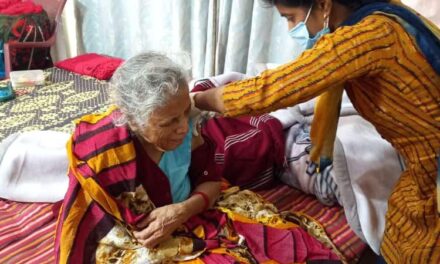In the wake of a heart attack, the importance of adequate sleep cannot be overstated. A recent study published in Nature has shed light on the critical role sleep plays in recovery, suggesting that our bodies may be biologically programmed to seek more rest following such a traumatic event. This research, led by Dr. Cameron McAlpine, an assistant professor of cardiology at the Icahn School of Medicine at Mount Sinai in New York City, reveals that not only can good sleep help prevent future heart attacks, but it may also significantly aid in healing after one.
Deep Sleep Increases After a Heart Attack
To understand the relationship between heart attacks and sleep, researchers conducted experiments involving laboratory mice. By inducing heart attacks in some subjects and observing the others, they discovered that mice experiencing heart attacks exhibited a remarkable threefold increase in deep sleep characterized by slow brain waves for approximately one week post-event.
The study also noted an uptick in the activity of monocytes—immune cells that are associated with increased sleep—immediately after the heart attacks in these mice. In stark contrast, the control group showed no such activity. Further tests demonstrated that when the sleep of half the heart-attack-affected mice was disrupted, their recovery was hindered, showing heightened inflammation compared to their undisturbed counterparts.
Preliminary tests on small groups of human heart attack survivors corroborated these findings. Participants who reported poor sleep in the four weeks following their heart attacks were found to be nearly twice as likely to suffer another heart attack compared to those who slept well.
The Mechanisms of Sleep in Recovery
Dr. Rachel Rowe, an assistant professor of integrative physiology at the University of Colorado in Boulder, emphasized the physiological benefits of deep sleep, stating that it allows the cardiovascular system to rest by lowering heart rate and blood pressure. “Getting good sleep after a heart attack reduces the strain on the heart, which promotes cardiovascular recovery,” she noted.
Enhancing Sleep Hygiene for Better Recovery
Improving sleep quality is crucial for both heart attack survivors and healthy individuals. Dr. Matthew Pase, an associate professor at Monash University in Melbourne, Australia, advises that adults aim for seven to nine hours of sleep each night, with a focus on both the quality and regularity of their sleep patterns.
To promote better sleep, particularly following a heart attack, Pase recommends the following practices:
- Stick to a regular schedule: Aim to go to bed and wake up at the same time every day.
- Keep work out of the bedroom: Designate your bed as a space solely for sleep, avoiding work, emails, or screen time.
- Wind down as bedtime approaches: Limit exposure to bright lights, caffeine, and alcohol in the evening to prepare your body for rest.
- Save sleep for nighttime: Avoid long naps during the day, as they can interfere with your ability to fall asleep at night.
Conclusion
As research continues to unveil the intricate connection between sleep and cardiovascular health, it becomes increasingly clear that prioritizing good sleep habits is a vital component of recovery after a heart attack. By understanding and embracing the healing power of sleep, heart attack survivors can significantly improve their chances of a healthier future.












